What is Roon? How the music platform works and what devices are Roon Ready
A one-stop music management platform from which to access, control and play all your digital music
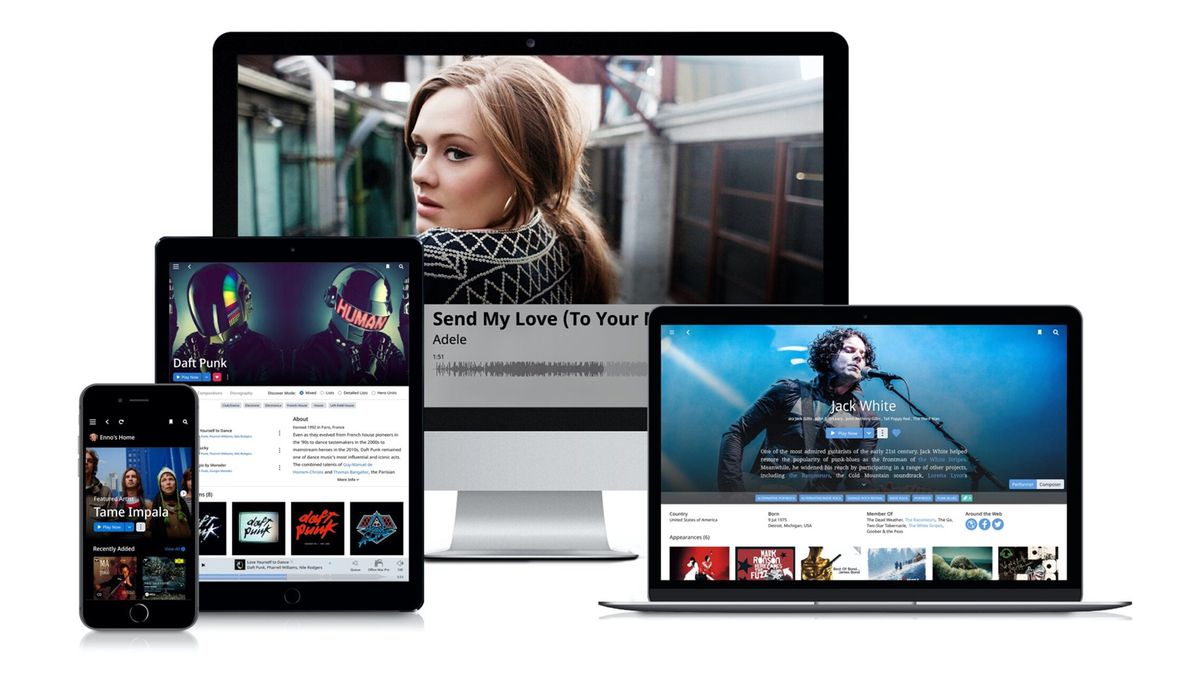
What is Roon? It's not the easiest music platform to explain. The fact that Roon Labs has its own, dedicated Roon Knowledge website is a testament to that. The shortest way to describe Roon is that it is a membership-based, multi-device, multi-room music software platform.
Roon organises your digital music library across various sources, cleans up your files and their metadata, and directs the music to your motley crew of Roon-compatible hi-fi kit, of which there is now a lot. A walled garden of hardware this is not. Roon aims to be a well-organised, carefully considered democratisation of multi-room – and succeeds in that.
Roon's goals are also supreme usability and super high-quality sound. The interface was designed to be richer than anything else and it "supports bit-perfect playback of lossless and lossy file formats, including high-resolution audio content like PCM and DSD, in both stereo and multichannel".
Hardware support is almost universal in the hi-fi space these days – and hey, it must be doing something right as Samsung-owned Harman International (which owns JBL, AKG, Mark Levinson et al) bought it in November 2023.
So if you want to know exactly what the Roon music server is before you sign up to become one of more than 100,000 Roon users worldwide, read on...
What is Roon?
At its core, Roon is a music management software that brings all your digital music and hardware into one place – your personal local and networked files, your subscribed-to streaming service libraries, and even internet radio. Roon is not a music streaming service in its own right; it does not offer access to any music service you are not already signed up to.
It then lets you easily stream that music to Roon-compatible ('Roon Ready') audio output devices in your home in a multi-room environment as you please. This is all controllable via Roon's desktop, smartphone and tablet apps.
Essentially, it is the brain which tells your music what to do and where to do it – the policeman directing the traffic. It joins the disparate dots of your listening ecosystem, giving you a one-stop-shop to access, control and play everything. To do that, there are several key parts to Roon's structure: the Roon Core, the Roon app and the audio devices. Roon also has two servers/streamers called Nucleus. So let's look at all those individually...
What is a Roon Core?
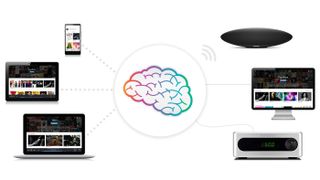
Every Roon set-up requires a Roon Core. It's the conductor of your music-streaming orchestra. It centralises the Roon application, which is responsible for all the thinking your system needs to do. That way, you don't need to update all your bits and pieces of hi-fi every time Roon is fixed or upgraded.
Naturally, your Roon Core needs to be something with decent computational chops, so in most set-ups will likely to be a Mac or Windows PC. It could also be a NAS (Network Attached Storage) drive, installable with the Roon Core server software, or a dedicated music server such as Roon's own Roon Nucleus One ($500 / approx £400 / approx AU$780) or flagship Roon Nucleus Titan ($3699 / approx £2900 / approx AU$5600), which naturally have the software pre-installed. Here you can find a list of Roon partner products.
Music management
Wherever it sits, the Roon Core software will manage the music from all of your digital sources: Tidal, Qobuz, NAS, HDD, USB and radio. It builds an interconnected digital library, with cleaned-up, up-to-date metadata, which is then tucked up into one, tidy interface with all the rich content that Roon can muster.
Those extras include photos, bios, reviews, lyrics, and concert dates, and make connections between artists, composers, performers, conductors, and producers. The idea is to create a more searchable, magazine-type feel to your music, so you can not only play your music but also be invited to interact with and learn about it.
Music playback
As well as organising your collection, your Roon Core is responsible for music playback too, and it aims to take as much of the heavy lifting away from your playback devices as possible. It does all the audio stream conversion and volume levels the output. It controls your play queue, your output devices and the multi-room zoning as well. It also handles all the software updates.
Keeping all of those computational processes in one place means that the audio circuitry of your hi-fi equipment can be freer of noisy chips and components which may otherwise harm the quality of music playback. It also means that your hi-fi kit won't become outdated.
"AirPlay for audiophiles"
Roon Advanced Audio Transport (RAAT) is the technology that allows this all to work in a centralised way. Roon describes it as "AirPlay for audiophiles". It allows the Roon Core to do everything apart from acting as your remote control or the audio output device itself. Consequently, it promises fewer dropouts, lower latency and hi-res audio streams of up to 32-bit/768kHz PCM and DSD512.
- MP3, AAC, WAV, FLAC: all the audio file formats explained
What is the Roon Remote?
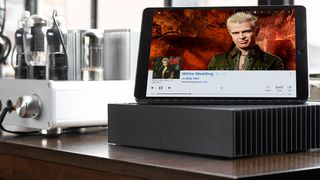
This one's easy. Roon Remote is the name of the Roon app on most app stores. It is a software remote control for your Roon service. It's not the core, it's not your library; it's simply the way you access what you've got and the way you ask your Roon Core to play music on your devices.
There are Roon Remote apps for iOS, Android, Windows and Mac OS to use on smartphones, tablets and computers. You use these to browse and play music with Roon apps – and each variant of the app has been created with a single code base to make sure that the experience is uniform and therefore familiar. You can install and use as many as you like, and all the data is kept synchronized in real-time, with Roon claiming that there's no lag and no stale data.
In February 2021, the 'Roon 1.8' update introduced new personalisation features. The service has always organised music into a searchable digital magazine, but version 1.8 took things up a notch by adding an individually personalised Home screen that boasts an ever-changing roster of artists based on your listening habits.
It improved the ability to draw on user metadata to more accurately tailor music recommendations. The spiffed-up Focus feature, for example, can now search anywhere in Roon, including Tidal and Qobuz, making it easier to explore hi-res tracks by your favourite artists, genres and composers.
It also enabled users to dig down into each artist's influences and collaborations – Roon describes it as a "360-degree view" – and use the new quick links to ask the Roon community questions.
That gives you a window into the sort of features and user experience you can expect, although in 2022 Roon changed the game again by introducing Roon 2.0.
Arguably an even bigger deal than 1.8, Roon 2.0 introduces the Roon ARC app for iOS and Android. This mobile app lets you listen to your entire Roon library of tracks on your phone, so you don't have to rely on just what the current streaming services have to offer – a Godsend if you have a ton of rare music stashed away on a hard drive that you can't find on the likes of Spotify, Apple Music et al. You can download songs in their original format for offline listening too, and access the Tidal and Qobuz libraries directly from the Roon ARC app. It's dead-handy for on-the-go listening.
Device support: what hi-fi is 'Roon Ready'?
"Audio devices" are the final part of the chain. They receive the music and either send it along the hi-fi chain or output it itself. These might be networked speakers, music streamers, headphone amplifiers, DACs or even just a laptop.
Look out for 'Roon Ready' certification on your playback devices. This is the guarantee that they will support Roon's hi-res streaming RAAT technology. Roon will discover Roon Ready devices without a problem and automatically deliver the highest possible audio quality to them.
Roon has become seemingly ever-present on the spec sheets of streaming-savvy hi-fi kit. It claims it is compatible with over 1000 devices from nearly 200 audio brands, including – deep breath – Arcam, Audiolab, Astell & Kern, Bluesound, B&W, Cambridge Audio, Chord Electronics, Cyrus, dCS, Devialet, Denon, Elac, JBL, KEF, Linn, Marantz, McIntosh, Mark Levinson, Meridian, Moon, NAD, Naim, Onyko, Oppo, Pioneer, Pro-Ject, TEAC and more. Essentially, Roon support has become as prevalent in product specifications as AirPlay and Bluetooth.
Take a look at the full Roon Ready list to see every brand Roon has partnered with.
Device support: what is 'Roon Tested'?
'Roon Tested' is a second tier of hardware partner program used by Roon. They're not guaranteed for the highest levels of audio quality but all Roon Tested devices have been checked and profiled by Roon to make sure that the software is configured to help these endpoints work at their very best.
The idea is to give users the confidence that Roon Tested kit will slot into their system easily and work properly. Roon Tested devices include those made by Audioquest, Denon, Marantz, McIntosh and many more. Take a look at the full Roon Tested list for more details.
Fortunately, that's not quite the end of it for Roon audio devices. There are one or two more commonplace audio and streaming standards that also work with Roon...
Does Roon work with AirPlay devices?
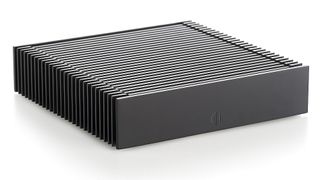
Roon will support most AirPlay devices, whether Apple-made or third party, and you should see them picked up by the Roon Core on your apps. Go to the Audio tab on your Roon Remote and you'll find a list of all available AirPlay endpoints. If your AirPlay device is sleeping, Roon may miss it. Wake it up and try again, if needs be.
The maximum resolution for AirPlay is a 'CD quality' (16-bit/44.1kHz), though, so Roon will downgrade any audio streams to fit with playback at that level.
Does Roon support Sonos?
Interestingly, it does! Sonos kit is fully supported by Roon. The maximum quality audio Sonos hardware can receive is CD-quality-like 16-bit/48kHz but, as with AirPlay, the Roon Core will downsample higher bitrate streams automatically to fit.
Does Roon support Chromecast?
Yes again. Anything that you can plug a Google Chromecast dongle into can also become part of your Roon system because Roon fully supports Chromecast with music streams up to 24-bit/96kHz.
That works for legacy Chromecast devices including the Chromecast (Gen 1 and 2), Chromecast Audio, Chromecast Ultra, Chromecast with Google TV, Google Home, Google Home Mini and Google Home Max. Google's newer Nest speakers are compatible too, and we presume the all-new Google TV Streamer will be too. In fact, Roon says that most devices with “Chromecast Built-in” should also be detectable by your Roon Core. Head to 'Settings' and then 'Audio' on the Roon Remote to enable your Chromecast device.
You'll get streams of up to 24-bit/96kHz using Chromecast Audio. Other Chromecast devices will support sample frequencies of up to 48kHz. Any video-supporting Chromecast devices will also work as a display for Roon to show album artwork, artist photos, and track information, as well as the audio, with what's known as Roon Display.
Voice control and zone grouping will also work depending on your Chromecast devices.
What audio quality can Roon stream?
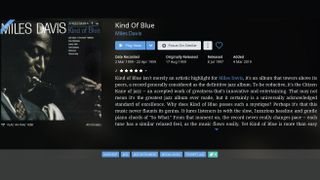
We covered this above but just in case you're skim reading (as if?), Roon Ready devices can receive streams of up to 32-bit/768kHz PCM and DSD512, or in other words: the majority of consumable files and streams out there.
Not all networked audio outputs can handle those bitrates, though, so a Roon Core automatically converts the audio streams to the optimal resolution for those other devices.
For details on the bitrates when using AirPlay devices, Sonos and Chromecast, see the relevant sections above.
When connected to a compatible HDMI device, Roon also provides multichannel playback for (FLAC, WAV, ALAC, AAC, AIDD, DFF and DSF) content for up to eight channels per device, so 7.1 configurations are supported.
Does Roon support MQA?
Roon and MQA (Master Quality Authenticated) technology are firm friends. This used to be handy if you had a Tidal HiFi subscription but your music streamer didn't play nice with the file unfolding of hi-res (MQA-encoded) Tidal Masters streams. You see, in a Roon set-up, it isn't the streamer that decodes the files but the Roon Core. So, you could use your Roon Core to decode your Tidal Masters stream, unpack the MQA audio and then send it over to your non-MQA-supporting streamer as a playback format which it can cope with.
The way that works is that the Roon Core decodes the MQA file into an MQA Core stream. That then produces a PCM stream at 88.2kHz or 96kHz which is passed on to your output device. That stream also happens to include further MQA information. So, if your player has an MQA-compatible DAC inside it, then it can do further unfolding of that stream to unlock more levels of MQA's audio potential.
As Tidal has now ditched the MQA format, however, this example is no longer relevant. That said, the relatively new owner of MQA, Lenbrook, has announced plans to launch a new MQA-toting streaming service with HDTracks. So perhaps MQA, and its relationship with partners such as Roon, will get a new lease of life in the near future.
What is MQA? Take a look at our guide to learn more about it.
What does Roon cost?
'Not cheap' is the easy answer, but the engineers at Roon Labs would doubtless say it is worth it. To throw in our two penneth, we have found it to be a highly intuitive music management tool and, indeed, a bit of a hi-fi luxury.
There's a lot of work that goes into usability, functionality, look, feel and everything else, and the upshot is that Roon currently costs $149.88/year for the standard membership if you pay annually. That works out as – quick maths – $12.49 per month. Alternatively, it is $14.99 per month if you want to pay monthly. That includes full Roon functionality for one Roon Core to manage your music library and unlimited remote devices.
The other option is to bet the house and go big. If you love Roon and think you will want to use it for more than five years, then a lifetime Roon membership costs $830 and makes sense. This is a good time to note that nothing from early statements around the Harman International takeover of Roon suggests that the platform won't stand the test of time. Roon Labs Founder Enno Vandermeer has reassured subscribers that "Roon will continue exactly as it is", with memberships and billing processes remaining without interruption, no change to device support (or customer support for that matter), and the community forum site set to continue.
And by the way, if you aren't a US resident, that's fine... but your purchase will be charged in US Dollars, with any currency conversions conducted by your bank.
Thankfully, you can try Roon before you buy: simply head over to the Roon website and sign up for a 14-day free trial.
MORE:
The best hi-fi systems you can buy
Everything you need to know about high-resolution audio
Hi-res music streaming services compared: which should you sign up for?
Get the What Hi-Fi? Newsletter
The latest hi-fi, home cinema and tech news, reviews, buying advice and deals, direct to your inbox.
Becky is the managing editor of What Hi-Fi? and, since her recent move to Melbourne, also the editor of the brand's sister magazines Down Under – Australian Hi-Fi and Audio Esoterica. During her 11+ years in the hi-fi industry, she has reviewed all manner of audio gear, from budget amplifiers to high-end speakers, and particularly specialises in headphones and head-fi devices. In her spare time, Becky can often be found running, watching Liverpool FC and horror movies, and hunting for gluten-free cake.
-
WhiteKnight2020 So, let's compare this to jriver media centre.Reply
Bit perfect audio, check
Streams to any dlna renderer, check
Can use many dlna controllers, check
Can stream over the internet to your phone, check
Handles video & audio, check
Costs about £30 for a perpetual licence, check.
Roon, £600, thanks but no thanks. -
Graig I'd like to comment on the idea that Roon is good for people with large libraries:Reply
The iOS and android Roon Remote apps have no way to quickly scroll through albums. There is no "alphabet slider" on the side like basically every other music app has.
So, if you like to browse by album and have 500+ albums in your library, you will be swiping 30-40 times to get through your library from A-Z.
Lots of people have complained to Roon about this for over a year, but they've done nothing to address the problem other than suggest typing in the name of the album you want to hear, which isn't the same as "browsing". I have 1000+ albums ripped from CD and can't remember the titles of all of them. So i like to flip through and browse to find a forgotten album once in awhile. Tedious and painful on Roon.
Roon is great as an automatic jukebox app and as a Tidal controller, but I've gotta say, for people with big collections that they like flipping through and browsing, it's just badly designed for the purpose. I was excited to switch from Plex to Roon, but after 6 months, I've switched back specifically because of this.
Also, I'll mention here that things seem to break frequently on Roon. An update a couple months ago kills functionality on QNAP devices, for example, and they have a non-employee community member working on the fix instead of doing it themselves (!)
Previously, playback on most Android devices stuttered like crazy and had random, loud static pops and cracks that could damage your hearing. It took a couple months for that problem to get fixed, too. -
MidwestAudioMan As a Roon owner (I bought a lifetime license), here in the USA, I must be missing something. From my viewpoint Roon is a great value with a combination of features that is not easily available anywhere else.Reply
1. Seamlessly integrates music files I own on a hard drive with TIDAL and Qobuz, including MQA through TIDAL. It all looks like one library regardless of the source of the music. With a TIDAL or Qobuz subscription, I have access to more music than I could ever possibly listen to.
2. Outputs to any device with exceptional functionality with Roon testing hardware to ensure it works and certifying devices as Roon Ready if they have the required capabilities to integrate with Roon. Roon ready devices can sync audio throughout a home. You can have music playing throughout a house in near perfect sync as if they are hard wired together. You can move your music from one listening room to another so your playlist follows you where ever you go in your home. You can have different music playing throughout the hosue so each family member can listen to whatever they want. This all works super smooth and easy.
3. The operational paradigm is simple and efficient. You set up one core. This is the brains of your system and is always accessible within your home using wifi. Next, any computer, tablet, or smartphone acts as a remote giving access to all your music in a visually pleasing and intuitive interface that allows various people to have their own profiles and playlists. This is all accessed through your wifi. Last, your audio devices, wheather they are a smart speaker, a receiver with a Google Audio/Home puck attached, or a wifi enabled device like an Oppo UDP 205 or a NAD C368 DAC amplifier. You select the zone or device you wish to play music to using your remotes and you don't even need to be in the same room to start music playing somewhere else in your house. All of this just works.
4. Integration of external data. Concert dates, lyrics, summary information about the artist and albums is all pulled in from the Internet by Roon and integrated into the display. Do you like Jessie Ware's new album, What's Your Pleasure? I pull that up and see she is performing thee times in April 2021 in Glasgow, Newcastle, and Leeds. She was born in London in 1984 and earned a degree in English Literature from the University of Sussex. I can click on the credits which lists everyone involved in this album and can click on the names to see what other albums or projects each person has been involved with. I have gone down so many rabbit holes this way and found a ton of new good music by clicking on these links. Each track will list how many other versions of that same song are out there. I can click on that link and then listen to all the other performances of that song. Just another rabbit hole.
Last, I dispute there are issues with this software. I've been using Roon for over a year. Once in a great while there is a hiccup which more often than not is not a Roon issue. If TIDAL or Qobuz's servers are down you can't play that music. But I've found Roon to be rock solid.
In case you're wondering, I do not work for Roon or have any financial interest in Roon. If I have one beef with Roon, is they seem to be too busy to update the main page of their website. But that is really reaching for a straw to complain about. Roon is the one single purchase that has changed the way I listen to music and the level of enjoyment I get from my music. Nothing in my music system has impacted me more. Given what it has done for me. I believe it to be a solid value and is unequaled in the marketplace. -
Jimboo It's a lot of money just to link stored bits of downloaded files and to give you info that is found on a typical Spotify package , seriously , given the size of the average house why do you need to hear it from speakers in every room? What are you doing playing an album while moving from the lounge into the kitchen taking a dump and then lying on your bed for five minutes.Reply
If tidal or qobuz has an issue it brings down everything. You download an app on your phone and tablet and gee it acts as a remote anyway. I don't need pretty pictures on a screen to gain musical enjoyment. There is a massive head in the sand failure by hi fi buffs to understand that apps give you pretty much everything roon gives you including info on dates , other albums and associated artists. It flatters to deceive. It's Tidal and quboz that give you the opportunity to explore music , roon has sold you a product that isn't really needed. It will be a niche product in five years time. -
MidwestAudioMan When you have a party at your house, and my house is fairly big, it is nice to have the same party music playing everywhere.Reply
When I finish up work in my office, I go to the kitchen to make dinner and move my playlist over there, and a Mahler Symphony takes some time to listen to. Taking that dump without a pause is nice. I'm sure Mahler does not mind!
I guess you make a case for why record album covers should be plain white with just the name of the band and album on it. Black ariel font only.
Read Roon's facebook page. Seems like the entire audio industry is getting on board. AURALiC, Arcam, and Trinnov Audio have just recently release new Roon Read products. I think Roon will be the Apple carplay to the audio industry. Why should a manufacturer have to develop their own system when they can use a good standard. Although NAD has gone out on their own and developed BluOS. Seems some manufactures find it important enough to go through the trouble to develop a similar solution on their own.
Did I mention it sounds truley awesome? -
Jimboo I can see the party angle but it's not a roon only concept , there are a myriad of ways of having your music played in such a manner. For me personally the covers and info displayed via a screen are not something I would want as my sole reference point. I still prefer the actual physical media and the ritual of actually playing them.Reply
Again , manafactuaring companies don't have to develop their own system. You are missing the point that they only have to allow an app to play via WiFi , common,simple and cheap. Roon is at heart a simplistic picture book for stored music. With Tidal say it offers access to music without storage and gives you the info roon seems to think is a novel concept.
Streaming will and is already making ripping,storing and organising redundant. You just need a phone or tablet. As I said you get roon to show you tour dates and the artists discography etc. It's already on the app. Ripping ,storing and management systems are overkill. It's on the app. Roon is just audiophile clickbait. To the average consumer it is an unnecessary over engineered idea that gives your man on the street little extra to warrant adding to his monthly streaming bill. Why pay extra for something that is 95% covered by what you already get from a monthly subscription service ? -
Trondi It sounds as though Roon has pinched all the best bits of Spotify and Sonos app.Reply
Stunning room integration (syncing etc), ‘radio’ post-listening suggestions, searching across NAS and ALL streaming services (non missing!), excellent cd SQ from Qobuz and Tidal
The only elephant in the room is hires.
But, Sonos mesh reliability is second to none. This is not unimportant as any user will agree.
But you pays your money ........ -
Chiron Reply
I have over 21,000 Albums in my library.Graig said:I'd like to comment on the idea that Roon is good for people with large libraries:
The iOS and android Roon Remote apps have no way to quickly scroll through albums. There is no "alphabet slider" on the side like basically every other music app has.
So, if you like to browse by album and have 500+ albums in your library, you will be swiping 30-40 times to get through your library from A-Z.
Lots of people have complained to Roon about this for over a year, but they've done nothing to address the problem other than suggest typing in the name of the album you want to hear, which isn't the same as "browsing". I have 1000+ albums ripped from CD and can't remember the titles of all of them. So i like to flip through and browse to find a forgotten album once in awhile. Tedious and painful on Roon.
Roon is great as an automatic jukebox app and as a Tidal controller, but I've gotta say, for people with big collections that they like flipping through and browsing, it's just badly designed for the purpose. I was excited to switch from Plex to Roon, but after 6 months, I've switched back specifically because of this.
Also, I'll mention here that things seem to break frequently on Roon. An update a couple months ago kills functionality on QNAP devices, for example, and they have a non-employee community member working on the fix instead of doing it themselves (!)
Previously, playback on most Android devices stuttered like crazy and had random, loud static pops and cracks that could damage your hearing. It took a couple months for that problem to get fixed, too.
Roon is amazing.
It is very easy to browse albums, and there is alphabet...
208720882089
